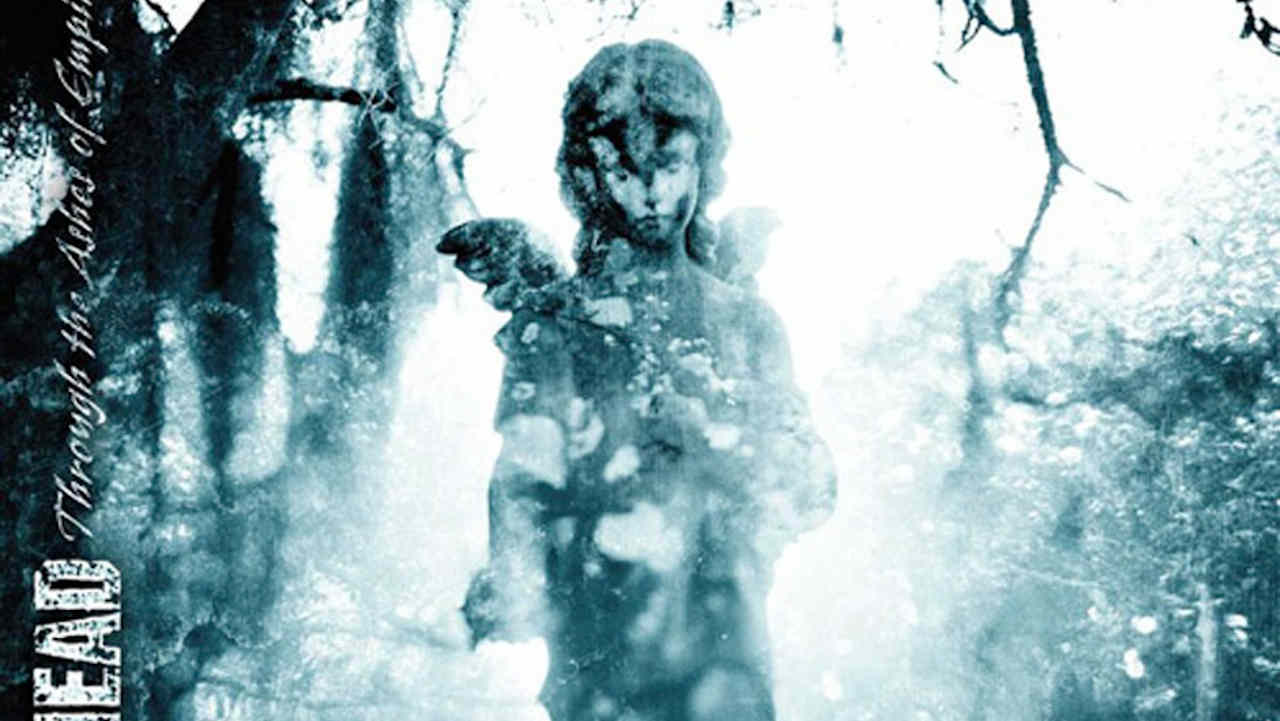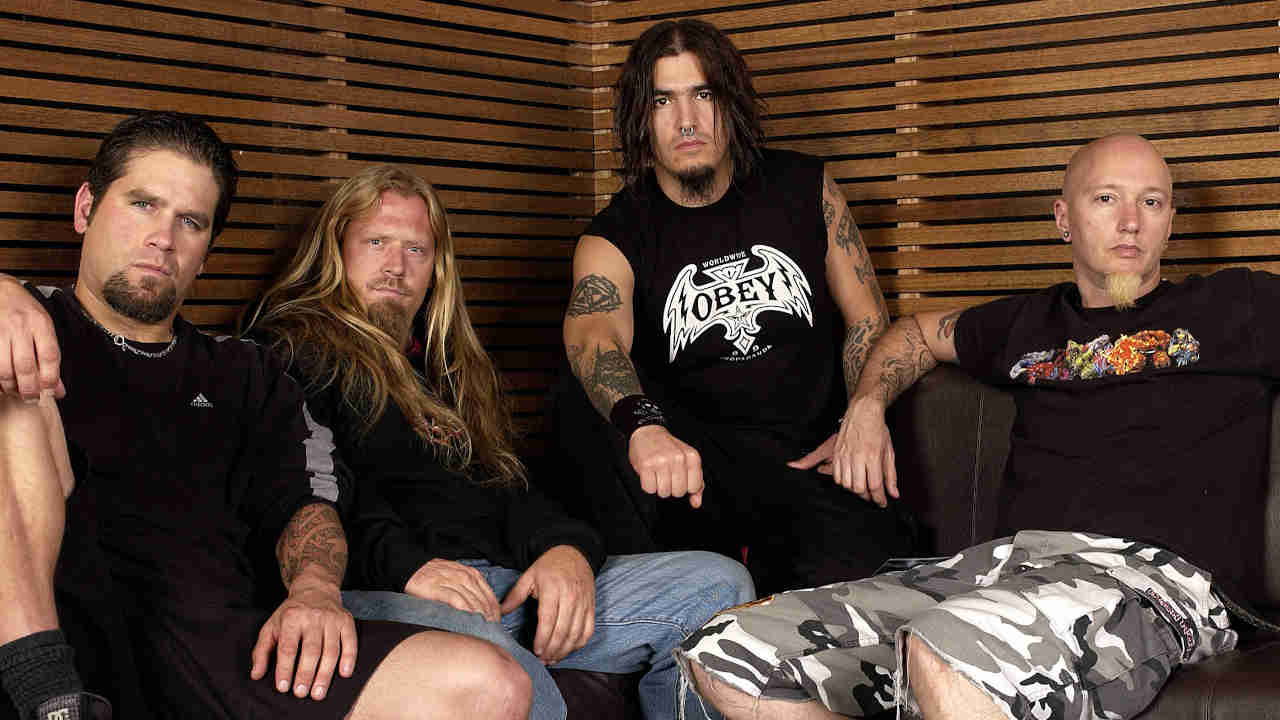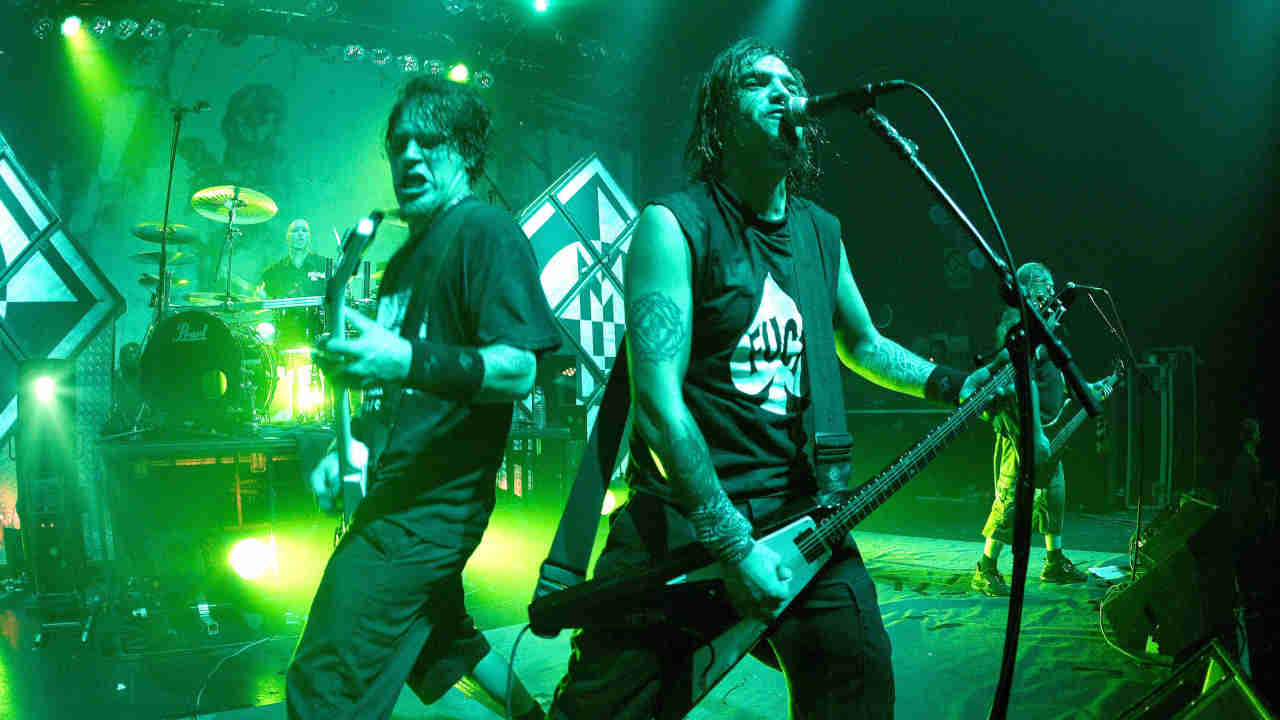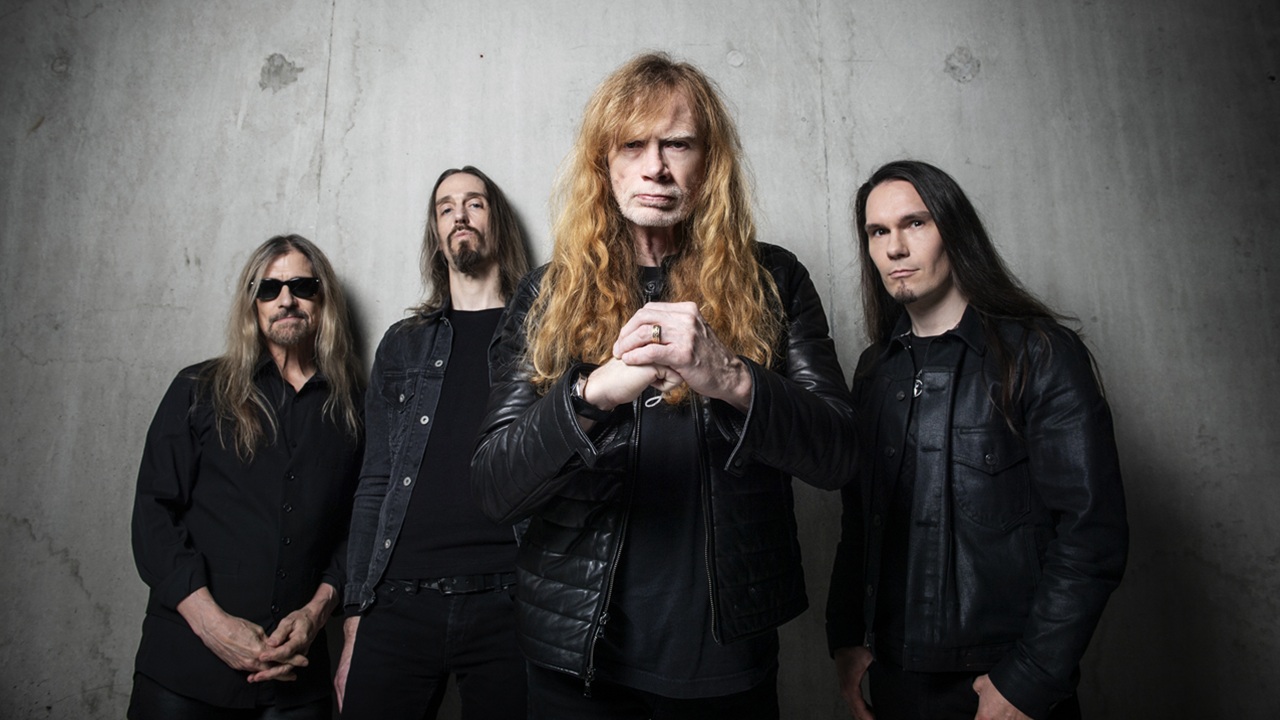Machine Head’s Through The Ashes Of Empires: inside their return to metallic glory
Machine Head were out of a deal and on the ropes in 2003. But Through The Ashes Of Empires would return them to the top of metal’s pile

Select the newsletters you’d like to receive. Then, add your email to sign up.
You are now subscribed
Your newsletter sign-up was successful
Want to add more newsletters?

Every Friday
Louder
Louder’s weekly newsletter is jam-packed with the team’s personal highlights from the last seven days, including features, breaking news, reviews and tons of juicy exclusives from the world of alternative music.

Every Friday
Classic Rock
The Classic Rock newsletter is an essential read for the discerning rock fan. Every week we bring you the news, reviews and the very best features and interviews from our extensive archive. Written by rock fans for rock fans.

Every Friday
Metal Hammer
For the last four decades Metal Hammer has been the world’s greatest metal magazine. Created by metalheads for metalheads, ‘Hammer takes you behind the scenes, closer to the action, and nearer to the bands that you love the most.

Every Friday
Prog
The Prog newsletter brings you the very best of Prog Magazine and our website, every Friday. We'll deliver you the very latest news from the Prog universe, informative features and archive material from Prog’s impressive vault.
History has been particularly unkind to the portion of Machine Head’s career that unfurled between the breakthrough success of The Burning Red and the band’s eventual return to metallic glory with their 2003 masterpiece Through The Ashes Of Empires.
Released in 2001, on the very day that two aeroplanes crashed into the Twin Towers in New York City, irrevocably changing the course of history and the entire feel of the decade that followed, Machine Head’s fourth studio album, Supercharger, was doomed from the start, regardless of how people viewed its songs.
In truth, a far better album than it was ever given credit for, the record was reasonably well received and went on to achieve a credible amount of success for Robb Flynn and co, but a combination of instability within the band’s ranks – predictably, square peg guitarist Ahrue Luster quit within weeks of Supercharger’s release – and a perception among fans that Machine Head had strayed a little too far from their trademark sound swiftly led to the widely held belief that the Oakland destroyers were gasping on the ropes. It also didn’t help that the band’s contract with Roadrunner disintegrated amid acrimony, leaving them officially unsigned for the first time since their formation.
- The top 10 best Machine Head songs
- Bonded by blood: the birth of the Bay Area Thrash scene
- Machine Head's Robb Flynn writes a letter to his 14-year-old-self
- The 50 best Metallica songs of all time
“Actually we were surprisingly upbeat, you know?” laughs Robb today. “Ahrue leaving was not a tragedy and we didn’t view it that way and none of our fans did either. We had basically mentally decided where we wanted to go on the next record, without having written anything. There’s a lot of mythology about Supercharger being a real down point for us but it really wasn’t like that. Supercharger outsold Through The Ashes… in a lot of territories in Europe. We headlined Brixton Academy on that tour and sold it out. That whole tour was pretty much sold out. Even the US run that we did was really successful.
“Even though we were unsigned and Ahrue had gone, we were going into the next album with a pretty positive attitude. It’s just that over the next year or so of writing, times got really tough. There was a lot of label interest as we were going into the writing sessions and they were telling us, ‘Look, we wanna sign you guys, so give us the demos…’ but about a year or so into the process it really became apparent that we were just having a bunch of smoke blown up our ass!”
With that initial record label interest vanishing into thin air, even as they began to produce new material, Machine Head suddenly found themselves facing a distinctly uncertain future, with all the financial difficulties and creative frustrations that such a situation inevitably entails. It’s no wonder, then, that they came very close to considering ending the band altogether.
“I can’t say the conversations didn’t happen,” admits Robb. “We had no money, the band was broke, I’d just gotten kicked out of my apartment and me and my wife had decided that we were going to buy a house. We bought the house and moved in. The next month I didn’t have money for the mortgage, because I was that broke. It was a tough time. We’d been turned down by probably about 35 labels and it didn’t look so promising. By the time the 20th rejection came in it was like, ‘Jesus! What the fuck?’ At that time there was a big push for radio songs at major labels. Bands like Lamb Of God weren’t on major labels like they are now. There was a lot of emphasis on trying to write something that would get played on radio. We were very opposed to it. We don’t write very good radio songs; we write good heavy songs!”
Sign up below to get the latest from Metal Hammer, plus exclusive special offers, direct to your inbox!

You can’t keep a monstrous metal band down for long, however, and it soon became apparent that Machine Head still had plenty of friends on the other side of the Atlantic, in the UK in particular. Still very much in demand as a live band, they embarked on a highly successful and largely sold-out European tour, during which they recorded the Hellalive live album at Brixton Academy in London, with Robb’s former Vio-Lence bandmate Phil Demmel helping out on guitar. Meanwhile, Roadrunner’s European division swiftly expressed an interest in prolonging their business relationship with the band, which meant that Robb, bassist Adam Duce and drummer Dave McClain were finally able to throw themselves into the task of making a follow-up to Supercharger safe in the knowledge that their efforts would eventually be released. And soon enough, three would become four once again.
“Phil did the European tour with us and it was going to be his last hurrah – he was going to retire,” explains Robb. “He’d left Vio-Lence 10 years prior and the bands he was with weren’t doing anything for him, so he was going to quit playing music. We needed a guitar player and so we went into it with no strings attached. But the tour ended and it was a weird note to end on. We had this incredible chemistry with Phil but we said goodbye and we were like, ‘If you change your mind, the door’s open!’ We wrote as a three-piece for the next nine months and got most of the stuff for the album together, but then Phil realised that this is what he wanted to do. He’d been thinking about it and he couldn’t stop thinking about it! We welcomed him back officially in March 2003. He brought some amazing riffs to the table and he invigorated us because now I had this guitar player I could bounce ideas off again.”
By the time Phil became an official member of Machine Head, the band already had most of the songs for the new album in the bag, including Bite The Bullet, All Falls Down and Left Unfinished, not to mention two songs bolstered by Phil’s riffs; the epic In The Presence Of My Enemies and the brutal Seasons Wither (which, oddly, would not appear on the European version of Through The Ashes…). However, the album’s two mightiest tracks, bookends Imperium and Descend The Shades Of Night, were far from ready to roll when the band entered Sharkbite Studios in Oakland, California in the summer of 2003.
“Originally, Descend… was this three- and-a-half minute Deftones-style song,” recalls Robb. “It was really weird and very short. It had the same chorus and bridge, but the verses weren’t written yet and there was no lead part. Dave wanted to cut the song from the album and I was like, ‘No way, this song is amazing!’ and he was like, ‘The song sucks!’ so I told him, ‘Give me 24 hours and I’ll come back with some- thing and it’ll be killer and if you don’t like it after I come back then we can fire it’. So I went back to the house and basically wrote what became the final version. I already had bits and pieces but I finalised it, wrote the lead and finished everything else. I went back and said, ‘It’s five minutes longer now!’ and they were like, ‘What?!’ Ha ha! But I jammed it for them and played it the whole way through and when it was done they said, ‘Dude, that’s fucking awesome! It’s on the record!’ I was so stoked because I thought it was a great song.”
Unbelievably, the last song to be completed for Through The Ashes… was its crushing opening track, Imperium. Now widely regarded as a Machine Head classic, the song very nearly didn’t make it on to the album at all.
“We’d had the verse riff and the chorus riff for about four or five months and it wasn’t going anywhere,” says Robb. “We thought it sucked! We were ready to drop it. What happened was that I got the flu really fucking bad, the most brutal flu I’ve had in years, and I was at home and felt like shit. My wife was working and I was alone in the house and fucking miserable. I was fucking around on the guitar and I started writing the intro. That was pretty cool, so I was wondering if it’d go onto that lame song we had! Ha ha! Within basically, like, an hour, Imperium was done. I was sitting there in my flu haze going, ‘I’m not sure, but I think this is pretty fucking awesome…’ By the time we finished jamming it the first time, everyone was like, ‘Fuck yeah! Let’s play it again!’”

Completed in July 2003, Through The Ashes Of Empires was precisely the statement that Machine Head needed to make after a couple of turbulent years. From the skull-crushing defiance of Imperium to the poignant funeral lament of Descend The Shades…, this was a huge artistic leap forward for a band that had been repeatedly written off by many critics and quite a few fans along the way. As the cliché goes, what doesn’t kill you…
“Everyone thought we were going to fail,” notes Robb. “People just wanted us to fail so badly and the more we heard that, the more fucking pissed off we got! We were like, ‘Fuck everyone! Fuck the entire fucking world! We’re gonna fucking show you!’ and that’s where the lyrics for Imperium came from. ‘Hear me now/Words I vow/No fucking regrets!’ That whole record was just one big ‘Fuck you!’ from start to finish. It was awesome.”
Despite the fact that Through The Ashes… was clearly superb, Roadrunner US initially maintained their resistance to re-signing the band, which meant that the album was not released in the US simult- aneously with the rest of the world; it was only available via import or over the inter- net where, inevitably, it had been leaked as soon as it hit the shops in Europe and elsewhere. However, once it became apparent that the metal world had fallen in love with Machine Head all over again, the tables would turn in their favour once more.
“We went on tour in Europe and it was fucking insanity,” laughs Robb. “People were freaking out! Eventually, because the buzz overseas was so much, Roadrunner US came back and some other labels came back to us too. There was definitely a bitter taste about going back with Roadrunner, but we re-signed with them because the deal they offered us was just right. We had 100 per cent creative control over every aspect of the band. It gave us a lot of grasp on our destiny and that was the most important thing for us. We were back and ready to take on the world again.”

Dom Lawson began his inauspicious career as a music journalist in 1999. He wrote for Kerrang! for seven years, before moving to Metal Hammer and Prog Magazine in 2007. His primary interests are heavy metal, progressive rock, coffee, snooker and despair. He is politically homeless and has an excellent beard.
